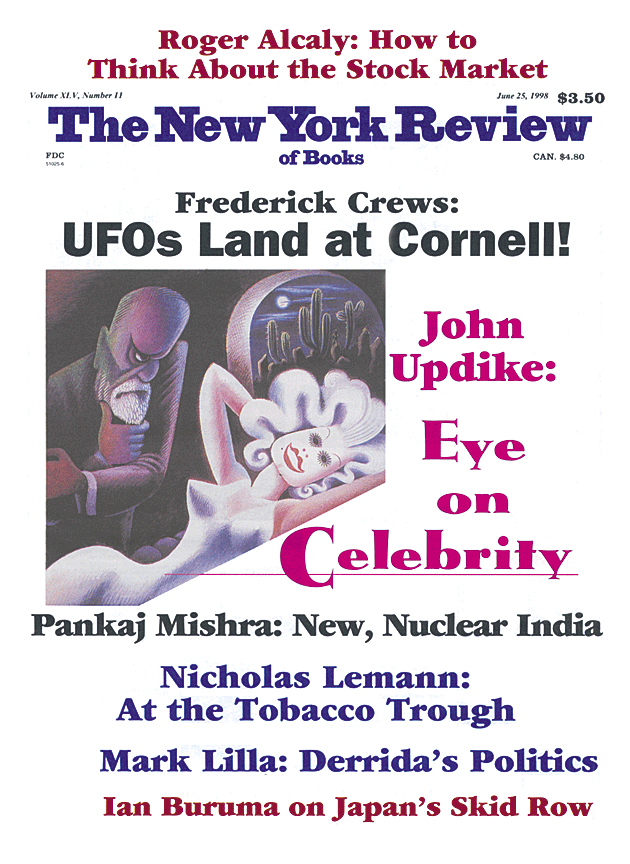In response to:
A Tale of Two Reactions from the May 14, 1998 issue
To the Editors:
It is astonishing to read Mark Lilla’s “A Tale of Two Reactions” [NYR, May 14], about the Sixties and the “Reagan Revolution,” and see no mention whatever of the brutalities revealed by and evoked in reaction to the civil rights movement, nor any mention of the great moral revulsion against what the United States was doing in Vietnam, and about which government officials lied and lied. Nor is there any mention of leaders and protesters being murdered. And one could go on and on. The “cultural revolution” did not come out of nowhere, but had deep roots in what was happening in the society. The Reagan Revolution also has deep roots in reacting against both the civil rights and anti-war movements. Lilla contributes to the myth, which Ihear over and over again from my students, that the Sixties were a matter of Woodstock and the Beatles and Haight-Ashbury. That was just the froth on the surface of much more fundamental issues. To deal with a “cultural revolution” without any mention of the roots of that revolution is not just to discuss Hamlet without the Prince, but also to leave out Ophelia, Polonius, Horatio, and also the ghost.
Daniel Levine
Thomas Brackett Reed Professor of History and Political Science
Bowdoin College
Brunswick, Maine
Mark Lilla replies:
The subject of my article was not the events of the Sixties but the reaction to those events and their consequences, real or imagined. Professor Levine is right about there having been a reaction to the civil rights and anti-war movements, but wrong to think that reaction on the right today has anything to do with these distant happenings. It would be hard to find a politician or serious political thinker in America today who rejects the real achievements of these movements; and while there are disagreements about specific racial or military policies, they take place in both major parties and cross all traditional ideological lines. Reaction to the “cultural revolution,” on the other hand, has been alive and fiercely kicking on the margins of American political life for thirty years. It is convenient for the left today to avoid serious discussion of the consequences of this revolution by wrapping it in the moral mantle of the civil rights and anti-war movements. And it is a myth, at the core of “progressive” reaction today, to think Ronald Reagan was elected (twice) for promising another Vietnam or reinstating Jim Crow.
As for Shakespeare, I’m afraid Professor Levine has the wrong play. Our American reactionaries bear less resemblance to the dithering Hamlet than to the stubborn Lear, whose narrow senses of honor and loyalty drove all those around him to ruin.
This Issue
June 25, 1998


